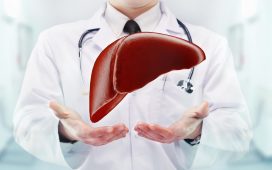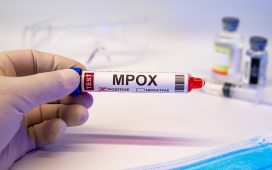Findings for subsequent allergic disease following infant exposure in the first six months of life
MONDAY, April 2, 2018 (HealthDay News) — The use of acid-suppressive medications and antibiotics during the first six months of infancy is tied to subsequent development of allergic disease, according to a study published online April 2 in JAMA Pediatrics.
Edward Mitre, M.D., from the Uniformed Services University of the Health Sciences in Bethesda, Md., and colleagues assessed whether there is an association between the use of acid-suppressive medications or antibiotics in the first six months of infancy and development of allergic diseases in early childhood. The authors utilized data from 792,130 children who were Department of Defense TRICARE beneficiaries (born between Oct. 1, 2001, and Sept. 30, 2013).
The researchers found that 7.6 percent of included children were prescribed a histamine-2 receptor antagonist (H2RA), 1.7 percent a proton pump inhibitor (PPI), and 16.6 percent an antibiotic during the first six months of life. Over a median 4.6 years of follow-up, for children prescribed H2RAs and PPIs the adjusted hazard ratios for food allergy were 2.18 and 2.59, respectively. Corresponding hazard ratios were 1.70 and 1.84 for medication allergy, 1.51 and 1.45 for anaphylaxis, 1.50 and 1.44 for allergic rhinitis, and 1.25 and 1.41 for asthma. Following antibiotic prescription the adjusted hazard ratios were 2.09 for asthma, 1.75 for allergic rhinitis, 1.51 for anaphylaxis, and 1.42 for allergic conjunctivitis.
“Acid-suppressive medications and antibiotics should be used during infancy only in situations of clear clinical benefit,” the authors write.
Copyright © 2018 HealthDay. All rights reserved.








